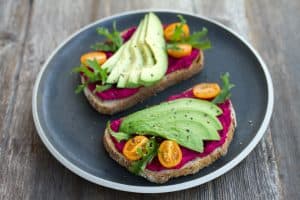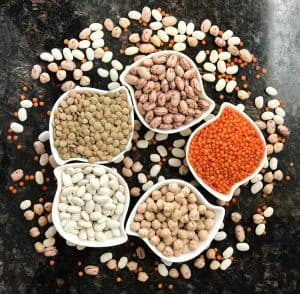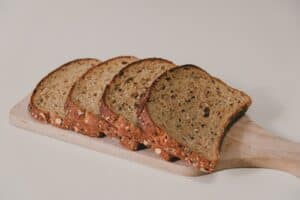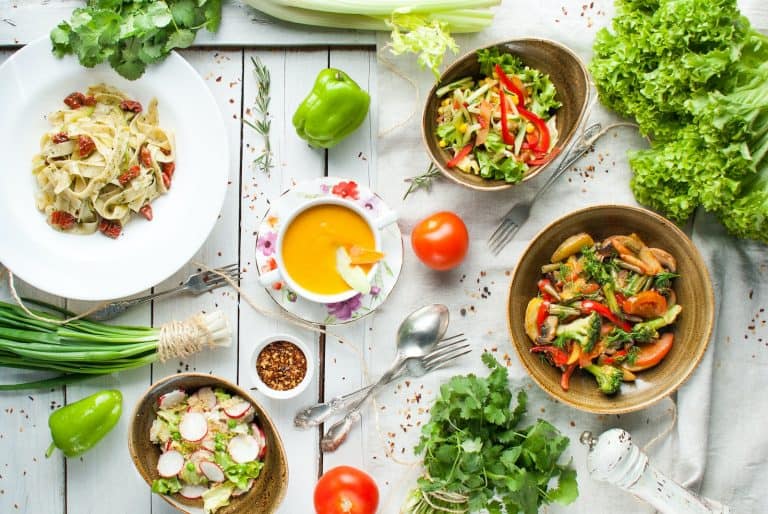In recent years, there has been a surge in people choosing to become vegetarians. While there are many benefits to this lifestyle choice, one of the most common concerns is whether or not it will lead to weight gain. The good news is that it is possible to be vegetarian without gaining weight – you just need to follow a few simple tips! In this blog post, we will discuss how to be vegetarian without gaining weight.
What is a vegetarian?
A vegetarian is someone who does not eat meat, poultry, or fish. This can include eggs and dairy products (lacto-vegetarian), or it can be a more restrictive diet that excludes all animal products (vegan). There are many reasons why people choose to become vegetarians, including ethical concerns, environmental sustainability, and health benefits.
The health benefits of vegetarian diets are well-documented. Studies have shown that vegetarians have a lower risk of heart disease, obesity, type II diabetes, and some forms of cancer. They also tend to have lower blood pressure and cholesterol levels. So, if you’re looking to improve your health, becoming a vegetarian is a great option!
What is plant-based diet?

A plant-based diet is one that focuses on foods derived from plants, including vegetables, fruits, grains, nuts, and seeds. This type of diet is also known as a vegetarian or vegan diet. While there are many different types of plant-based diets, they all have one thing in common: they exclude animal products.
How to be a healthy vegetarian
For many people, the thought of giving up meat is daunting. Will I get enough protein? What will I eat instead of chicken? Won’t I miss the taste of steak? While it’s true that making the switch to a vegetarian diet can take some getting used to, it doesn’t have to be all doom and gloom. In fact, done right, ditching meat can actually lead to weight loss and improved health. Here’s how to make the transition without putting on extra pounds.
How to be vegetarian without gaining weight?
Choose the Right Foods
When you’re trying to lose weight, not all vegetarian foods are created equal. In fact, some vegetarian staples like pasta, bread, and cheese can actually pack on the pounds if you’re not careful. The key is to choose foods that are high in protein and fiber and low in calories and unhealthy fats. Some great options include:
Beans and legumes:

These are packed with protein and fiber, which will help keep you feeling full throughout the day. They’re also low in calories and fat.
Vegetables:
Vegetables are low in calories but high in nutrients, making them a great choice for weight loss. Plus, they’re super versatile so you can eat them cooked or raw, as a side dish or as a main course.
Nuts and seeds:
Nuts and seeds are great source of healthy fats, protein, and fiber. Just be sure to watch your portions, as they are high in calories.
Whole grains:
Whole grains are a good source of fiber and nutrients, and they can help you feel full longer. Just be sure to avoid processed grains like white bread and white rice, which are high in calories but low in nutrients.
Fruit:

Fruit is packed with vitamins, minerals, and fiber but low in calories. Eaten in moderation, it can help you lose weight by satisfying your sweet tooth without adding extra sugar to your diet.
Eat Regularly
When you’re trying not to gain weight, it’s important to eat regular meals throughout the day. This will help keep your metabolism going and prevent you from getting too hungry and overeating later on. Aim for three square meals plus two snacks each day. And make sure each meal contains a mix of protein, healthy fats, complex carbs, and fiber-rich foods to keep you feeling satisfied until your next meal rolls around.
Get Moving
No matter what diet you’re on—vegetarian or otherwise—weight loss comes down to one thing: burning more calories than you consume each day. So even if you’re eating all the right foods, you won’t lose weight unless you get up off the couch and start moving around more often. A good goal to aim for is 150 minutes of moderate-intensity exercise per week—that’s just 30 minutes five days a week. But anything is better than nothing so even if you can only fit in 10 minutes here or there throughout the day, those mini-workouts will still add up over time!
Avoid Alcohol
Alcoholic beverages are often high in calories and sugar. Additionally, they can make you feel less full after meals, leading you to eat more than you would otherwise. For these reasons, it is best to avoid alcohol when trying to lose weight. If you do choose to drink alcohol occasionally, opt for lower-calorie options such as light beer or wine spritzers.
Avoid processed “vegetarian” foods
Just because food is marketed as being vegetarian doesn’t mean that it’s healthy. Many vegetarian processed foods are high in calories, fat, and sodium without being particularly filling or nutritious. To avoid these traps, stick to whole foods that are minimally processed. Like veggie burgers made from whole grains, beans, and vegetables or veggie dogs made with soy.
Calorie intake
If you want to lose weight, you need to create a calorie deficit. This means eating fewer calories than your body burns in a day. While there are many different ways to do this, the most important thing is to find an approach that works for you and that you can stick with long-term.
For some people, cutting out high-calorie foods or eating smaller portion sizes may be all it takes. For others, however, calorie counting or tracking macros (protein, fat, and carbs) may be necessary. No matter what method you choose, make sure you’re still getting the nutrients your body needs by filling up in healthy foods like fruits, vegetables, lean protein, and whole grains. And don’t forget to move your body every day!
Limit Your Intake of Sugar and Salt
While you don’t need to cut out all sugar and salt from your diet, it’s important to limit your intake of these ingredients. Too much sugar can lead to weight gain, while too much salt can cause water retention, which can make you feel bloated and heavier than you actually are. When possible, opt for foods that are unsweetened or unsalted. And when you do use sugar and salt, be sure to measure carefully so you don’t go overboard.
Drink Plenty of Water

Staying hydrated is important for everyone, but it’s especially important for vegetarians, as water helps to keep you feeling full between meals. aim to drink eight glasses of water per day. You can also get your water intake by eating foods such as cucumbers and tomatoes, which are high in water content.
Vegan Diet and Weight Loss
Going vegan is a fantastic choice if you’re looking to shed unwanted pounds. A vegan diet, which excludes all animal products, is naturally lower in saturated fats found in meat and dairy. This, in turn, can help you avoid unwanted weight gain. The key is to ensure that your vegan meals are well-balanced and rich in nutrients.
One fact about veganism is that it tends to emphasize whole, plant-based foods such as fruits, vegetables, legumes, nuts, and seeds. These foods are generally lower in calories and higher in nutrients, making them ideal for weight loss.
To maintain a healthy weight, it’s important to be mindful of your portion sizes and carbohydrate intake, as excessive carbs can lead to weight gain. Incorporating a variety of nutrient-dense foods into your meals, along with proper portion control, can be the basis of a successful vegan weight loss program. Consider using a meal planner to keep your nutrition on track.
Another tip for effective vegan weight loss is to limit your use of oil in cooking. While some oils are plant-based, they are calorie-dense and can quickly add up. Opt for oil-free cooking methods like baking, steaming, or using non-stick pans to reduce your calorie intake.
Managing Carbs and Portion Control

Carbohydrates are an essential part of a healthy diet, even for vegetarians and vegans. However, managing your carbohydrate intake and portion control is crucial to prevent weight gain.
For vegetarians and vegans, whole grains, fruits, and vegetables are excellent sources of carbohydrates. They provide essential nutrients and fiber, which can help you feel full and satisfied. It’s important to incorporate these carbs into your meals while being mindful of your portions.
One fact to keep in mind is that not all carbohydrates are created equal. Whole grains like quinoa, brown rice, and whole wheat pasta are nutrient-dense options that provide sustained energy without causing spikes in blood sugar levels. On the other hand, refined carbs like white bread and sugary snacks should be consumed sparingly, as they can lead to weight gain.
By factoring in nutrient-dense carbs in the right portions, you can maintain a balanced vegan diet that supports your weight loss goals.
Balancing Nutrients for Effective Weight Loss
Balancing nutrients is essential when following a vegetarian or vegan diet to lose weight effectively. A common misconception is that plant-based diets lack essential nutrients, but with careful planning, you can meet all your nutritional needs while shedding those extra pounds.
One fact to remember is that plant-based diets are naturally lower in saturated fats found in animal products, which can contribute to weight gain. This makes veganism a favorable choice for those aiming to lose weight.
To ensure you’re getting all the nutrients your body needs, focus on a varied diet that includes a wide range of fruits, vegetables, legumes, nuts, and seeds. These foods provide essential vitamins, minerals, and fiber, supporting your overall health and weight loss efforts.
Consider consulting a nutritionist or using a nutrition program to help you create balanced, nutrient-rich meals that align with your weight loss goals. With proper cooking techniques and a well-planned diet, you can enjoy the benefits of a vegan lifestyle while successfully shedding excess weight.
Conclusion: How to be vegetarian without gaining weight?
A vegetarian diet doesn’t have to mean giving up all your favorite foods—nor does it have to lead to weight gain. By choosing the right foods and getting regular exercise, you can easily lose weight while following a vegetarian lifestyle. So don’t be discouraged—give it a try! Who knows, you might just find that meatless living is for you after all…

